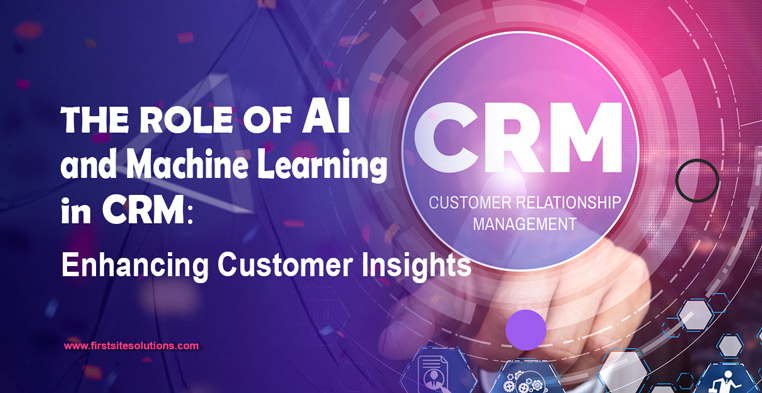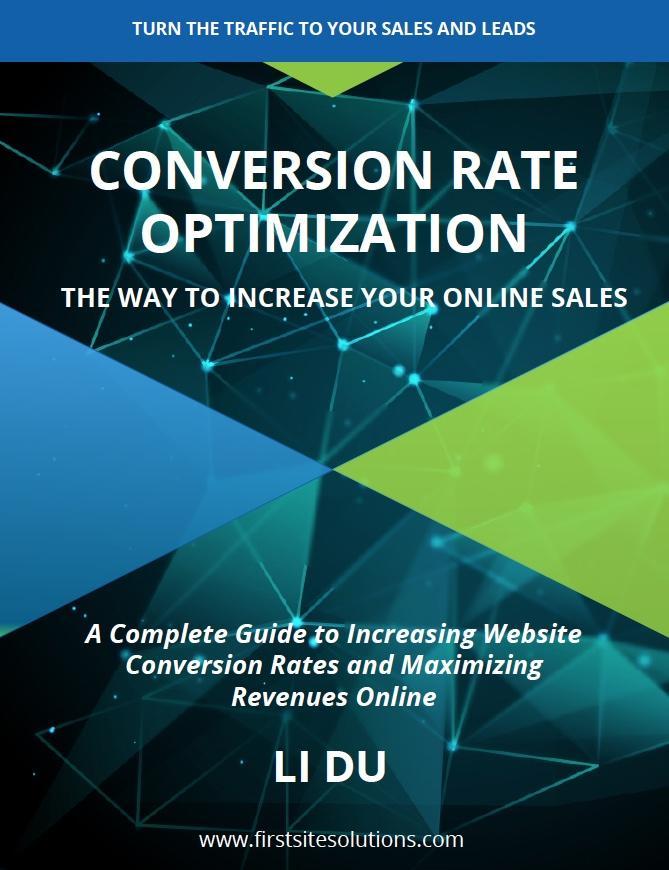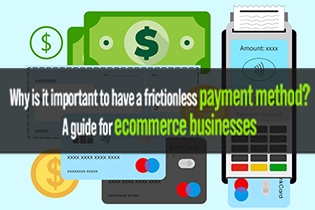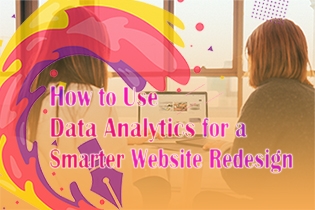
In today's data-driven business landscape, the role of AI and machine learning in CRM is nothing short of transformative. These technologies revolutionize how businesses manage customer relationships, extract valuable insights, and deliver personalized experiences.
Understanding customer insights
Understanding customer insights is the cornerstone of a successful online business strategy. These insights are like treasure maps, revealing the paths to get your business more visibility & conversions online. They encompass demographic details, such as age and location, as well as behavioral patterns, like purchase history and website interactions. By unraveling these insights, you can tailor your online presence to cater directly to your target audience's needs and preferences. This means crafting content that resonates, choosing the right channels for promotion, and timing your outreach effectively. Moreover, by leveraging AI and machine learning in CRM, you can dive deeper into these insights, uncovering hidden trends and predictive patterns that further boost your online performance.

You can boost the appeal of your stores using AI and machine learning in CRM!
Data collection and integration
Data collection and integration are the backbone of a robust CRM system. Without accurate and well-integrated data, your CRM's potential remains untapped. So, you should always work on how to improve your CRM data quality and ways to get better data. This begins with meticulous data collection, ensuring accurate, up-to-date, and relevant information. It's also essential to harmonize data from various sources, ensuring seamless integration into your CRM platform. This integration provides a comprehensive view of each client, allowing you to tailor interactions effectively. Therefore, investing in data collection and integration improves CRM efficiency and enhances your ability to make informed decisions.

AI tools are ideal for data processing and collection.
Predictive analytics in CRM
Predictive analytics in CRM is one of the best benefits of AI and machine learning in CRM. By harnessing historical data and advanced algorithms, predictive analytics helps forecast future market demands and preferences with remarkable accuracy. This invaluable insight allows businesses to tailor their marketing efforts, product recommendations, and interactions with customer service. So, with predictive analytics, you can identify high-value clients, anticipate their needs, and foster long-lasting relationships. Moreover, it optimizes resource allocation, ensuring your efforts are focused where they matter most. In a competitive landscape, staying ahead relies on understanding past behavior and predicting future trends. So, this strategic advantage offered by predictive analytics can significantly boost conversion rates, client satisfaction, and revenue.
Personalization at scale
Personalization at scale is the holy grail of AI and machine learning in CRM. It's about tailoring your interactions with clients to make them feel seen and valued, even in a digital world teeming with options. Leveraging AI and machine learning, you can analyze vast amounts of client data to understand their preferences, behavior, and needs. This allows you to create hyper-personalized experiences, from product recommendations to marketing messages. However, as you delve into personalization, just make sure to pay attention to data privacy compliance. Respecting client privacy is paramount, after all. So, ensure that you have robust data security measures in place and are transparent about how client data is used.
Customer segmentation
Customer segmentation divides your client base into distinct groups based on shared characteristics, needs, or behaviors. This strategic approach enables businesses to tailor their marketing efforts and product offerings. By understanding the unique preferences of each segment, you can create targeted campaigns that resonate with specific groups, ultimately leading to higher conversion rates and satisfaction. Whether it's segmenting by demographics, purchase history, or engagement levels, the goal remains the same: to deliver a more personalized and relevant experience to your clients. With the help of AI and machine learning in CRM, segmentation has evolved beyond basic categorization, allowing for dynamic, real-time adjustments.
Sentiment analysis
Sentiment analysis, often referred to as opinion mining, is a powerful tool that delves into the emotions and opinions expressed in text data. It helps businesses gain valuable insights into how people feel about your products, services, or brand. By using natural language processing and machine learning techniques, sentiment analysis can gauge positive, negative, or neutral feedback. This analysis goes beyond mere keyword detection to comprehend the context and tone of comments, reviews, and social media posts. This valuable information equips businesses to respond promptly to concerns, identify areas for improvement, and gauge the effectiveness of marketing campaigns. It's like having a pulse on the customers’ collective sentiment, helping businesses adapt and thrive in an ever-evolving market.
Chatbots and virtual assistants
Chatbots and virtual assistants are incredibly useful AI tools that have transformed customer service and engagement. These automated systems use natural language processing and machine learning to understand and respond to real-time queries, providing efficient and consistent support 24/7. Businesses across various industries have embraced these AI-powered helpers to streamline customer interactions, handle routine inquiries, and even facilitate online purchases. Doing so frees human agents to focus on more complex tasks, enhancing overall efficiency and client satisfaction. Furthermore, chatbots and virtual assistants can be integrated seamlessly into websites, messaging apps, and social media platforms, meeting your clients wherever they are. And their ability to learn and adapt ensures that the more they're used, the better they become at addressing specific customer needs, too.
Customer journey mapping
Customer journey mapping is a strategic approach that visualizes a client's entire experience with your brand. It's like creating a roadmap of their interactions, from the first touchpoint to post-purchase engagement. This process helps businesses gain invaluable insights into their behavior, pain points, and moments of delight. By understanding their journey, you can also identify critical touchpoints and opportunities for improvement, ensuring a seamless and satisfying experience. Whether optimizing your website's user interface or refining your support process, mapping the journey allows for data-driven decisions that enhance satisfaction and loyalty. Additionally, with the aid of technology and data analytics, customer journey mapping can become dynamic and real-time, adapting to changing customer behaviors.

You can optimize your site and sales funnel to enhance the journey!
Challenges and ethical considerations
Challenges and ethical considerations are crucial aspects of implementing AI and machine learning in CRM. After all, while the potential benefits are significant, we can’t actually ignore the pitfalls. One prominent concern is data privacy, as the collection and utilization of customer data require strict compliance with regulations like GDPR. Bias in AI algorithms is another challenge, as these systems can inadvertently perpetuate discrimination if not carefully designed and monitored. Striking the right balance between automation and maintaining a human touch is also complex. Rushing the implementation process can lead to inadequate training and integration, potentially harming customer relationships. That's why the marketing teams from moverstech.com recommend not rushing the process. Instead, businesses should take a deliberate and ethical approach, prioritizing transparency, data security, and fairness to ensure that AI-driven CRM enhances customer experiences while upholding ethical standards.
Working on your customer relationships
With everything we covered, the impact of AI and machine learning in CRM cannot be overstated. These technologies have been ushered in a new era of customer-centricity, enabling businesses to make data-driven decisions. As we look ahead, their usefulness will continue to evolve, offering endless possibilities for enhancing customer insights and driving growth. So, embracing these innovations is essential for staying competitive and thriving in the dynamic world of customer relationship management.








